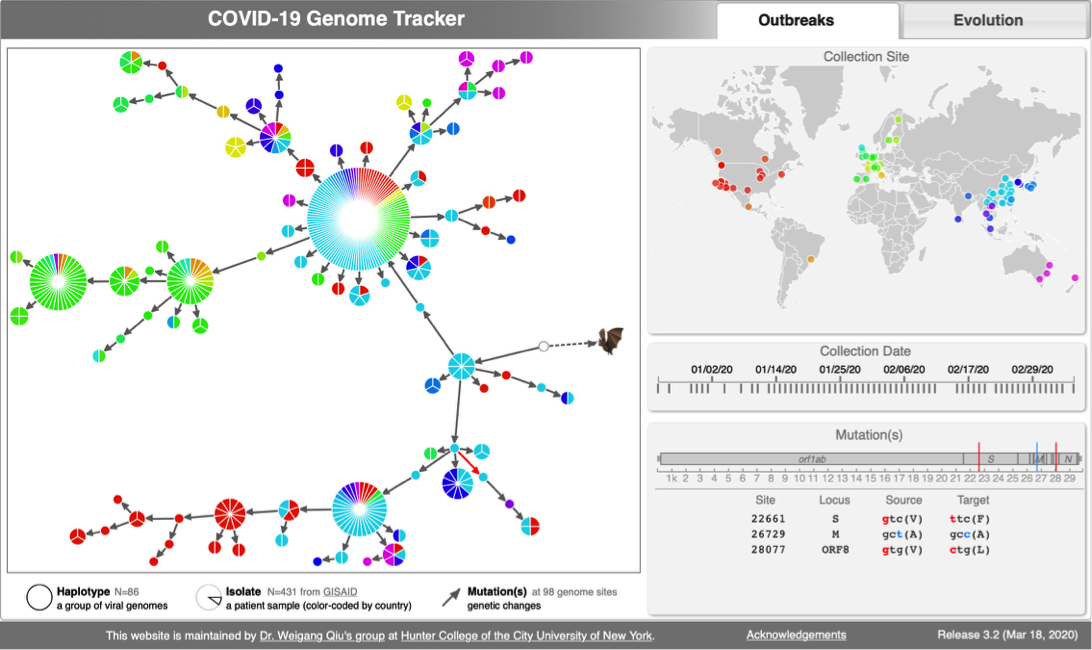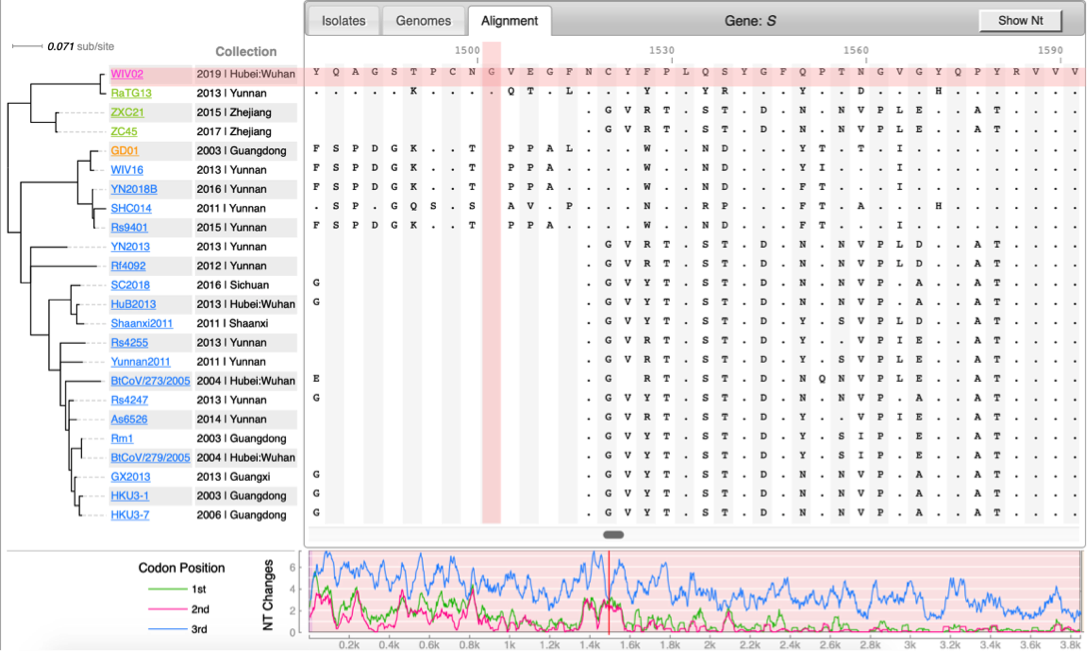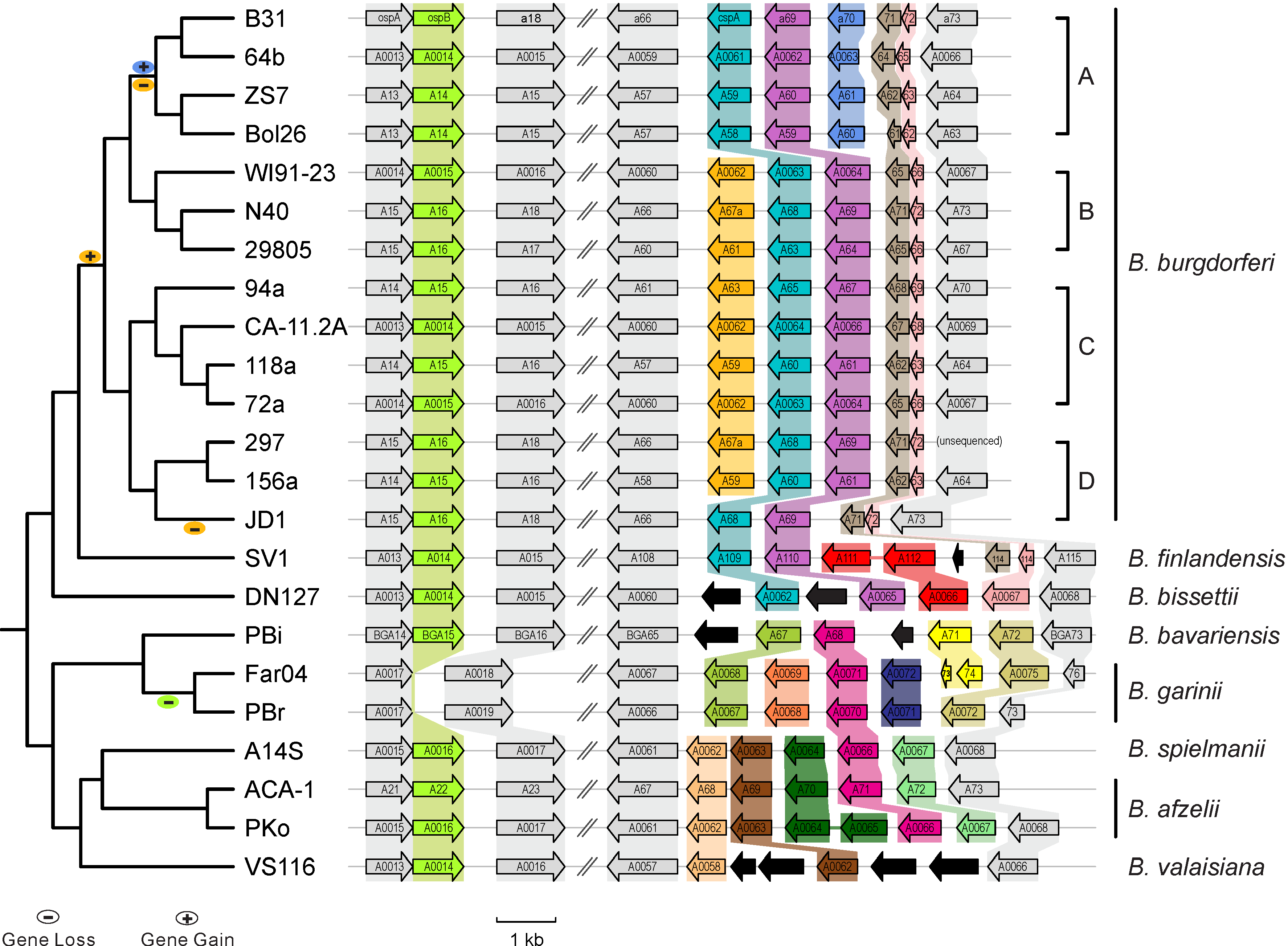EEB BootCamp 2020: Difference between revisions
Jump to navigation
Jump to search
Bioinformatics Boot Camp for Ecology & Evolution: Genomic Epidemiology
Thursday, Aug 6, 2020, 2 - 3:30pm
Instructors: Dr Weigang Qiu & Ms Saymon Akther
Email: weigang@genectr.hunter.cuny.edu
Lab Website: http://diverge.hunter.cuny.edu/labwiki/
imported>Lab mNo edit summary |
imported>Lab mNo edit summary |
||
| Line 35: | Line 35: | ||
<syntaxhighlight lang='bash'> | <syntaxhighlight lang='bash'> | ||
ls -lrt # long list, in reverse timeline | ls -lrt # long list, in reverse timeline | ||
ls cov_data # a folder of 100 CoV2 genomes in FASTA format, pairwise genome alignment sam and indexed sorted bam files generated by bwa (or nucmer) and samtools | ls cov_data # a folder of 100 CoV2 genomes in FASTA format, pairwise genome alignment sam and indexed sorted bam files generated by bwa (or nucmer) and samtools | ||
# We skipped bwa (or nucmer) and samtools part of the tutorial for time constrain. The bash script used to generate these files is available on request | # We skipped bwa (or nucmer) and samtools part of the tutorial for time constrain. The bash script used to generate these files is available on request | ||
ls cov_data/*sorted.bam | wc # 100 sorted.bam files correspond to 100 sequence files | ls cov_data/*sorted.bam | wc # 100 sorted.bam files correspond to 100 sequence files | ||
Revision as of 03:43, 4 August 2020
| CoV Genome Tracker | Coronavirus evolutuon | Lyme Disease (Borreliella) |
|---|---|---|
Case studies
CoV genome data set
- N=100 SARS-CoV-2 genomes collected during January, February & March 2020. Data source & acknowledgement GIDAID (Warning: You need to acknowledge GISAID if you reuse the data in any publication)
- Download the folder "bootcamp_august_6th_2020": data file
- unzip the folder
unizip bootcamp_august_6th_2020.zip
- View files
ls -lrt # long list, in reverse timeline
ls cov_data # a folder of 100 CoV2 genomes in FASTA format, pairwise genome alignment sam and indexed sorted bam files generated by bwa (or nucmer) and samtools
# We skipped bwa (or nucmer) and samtools part of the tutorial for time constrain. The bash script used to generate these files is available on request
ls cov_data/*sorted.bam | wc # 100 sorted.bam files correspond to 100 sequence files
less ref.fas # NC_045512 as reference sequence, "q" to quit
less metadata_cov.txt # a tsv file that contains collection dates and geographic information of 100 CoV2 genomes
wc metadata_cov.txt
file TCS.jar # Java application
less bcf-snp-call.sh # a file contain all the bash commands required to call SNPs and generate vcf file of 100 CoV2 genomes
less ploidy.txt # to specify the ploidy=1 during vcf SNP call
less rgb.txt #rgb color code to color the phylogenetic network
Bioinformatics tools for genomic epidemiology
- BpWrapper: command-line tools for manipulation of sequences, alignment, and tree (based on BioPerl). Github Link; Flowchart from publication
- Pairwise genome alignment with MUMMER: Github link
- Multiple alignment with MAFFT: Github link
- Extract SNVs with snp-sites: Github link
- Haplotype network with TCS PubMed link
- Web-interactive visualization with D3js: Github link; Web tool; Paper
Tutorial
- 2-2:30: Introduction on pathogen phylogenomics
- 2:30-2:45: Demo: sequence manipulation with BpWrapper
bioseq --man
bioseq -i'genbank' ref.gb > ref.fas
bioseq -n Jan-Feb.mafft
bioaln --man
bioaln -n -i'fasta' Jan-Feb.mafft
bioaln -l -i'fasta' Jan-Feb.mafft
bioaln -n -i'phylip' cov-565strains-617snvs.phy
bioaln -l -i'phylip' cov-565strains-617snvs.phy
FastTree -nt cov-565strains-617snvs.phy > cov.dnd
biotree --man
biotree -n cov.dnd
biotree -l cov.dnd
- 2:45-3:10: build haplotype network with TCS
# Data pre-processing
# 1. Download genomes & meta data from GISAID
# 2. Run dnadist against a reference genome
man nucmer
dnadiff -h
dnadiff ref.fas <query FASTA>
mkdir fasta-files
cd fasta-files
for f in *.fas; do dnadiff ref.fas $f; done
<to be added: plot in R seq diff vs collection date>
# 3. Remove mis-assembled and reverse-complemented genomes
bioseq -d'file:'
# 4. Remove genomes with more than 10 non-ATCG bases
bioseq -d'ambig:10'
# 5. Run mafft (not run; takes too long)
# 6. Run snp-sites
snp-sites
java -jar -Xmx1g TCS.jar
- 3:10-3:20: interactive visualization with BuTCS
- Load graph file
- Load group file
- Load haplotype file
- 3:20-3:30: Q & A


